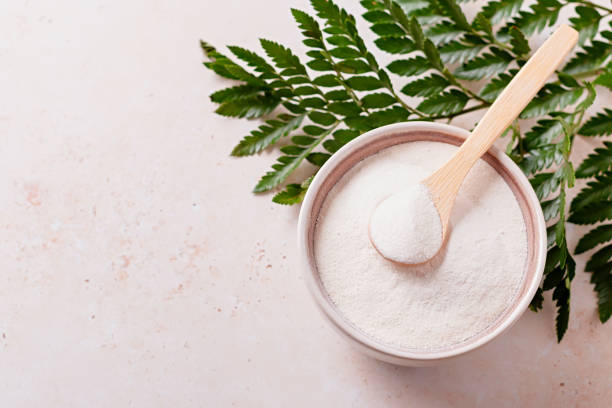
What are the differences between Bovine and Marine collagen?
Collagen has become a buzzword in the health and beauty industry, hailed for its potential to promote youthful skin, strong nails, and healthy joints. As the popularity of collagen supplements continues to grow, two major sources have emerged: bovine and marine collagen. But what sets these two types apart, and which one might be the best choice for your needs? Let's explore the differences between bovine and marine collagen.
Source:
The most obvious distinction between bovine and marine collagen is their source. Bovine collagen is derived from the connective tissues of cows, usually sourced from their hides, bones, or cartilage. On the other hand, marine collagen is extracted from fish scales and skin, often from fish like cod, snapper, or pollock. This difference in source leads to variations in the properties of these collagens.
Amino Acid Profile:
Collagen is composed of amino acids, which are the building blocks of proteins. The amino acid profile of bovine and marine collagen differs due to their distinct sources. Bovine collagen tends to be higher in types I and III collagen, which are abundant in skin, bones, and tendons. These types are known for supporting skin elasticity and bone health. On the other hand, marine collagen is rich in type I collagen, which is also important for skin health and elasticity. Some studies suggest that marine collagen may have a more bioavailable amino acid structure, potentially making it more effective in promoting collagen synthesis in the body.
Bioavailability:
Bioavailability refers to how well a substance is absorbed and utilized by the body. Some proponents argue that marine collagen may have superior bioavailability due to its smaller particle size and structure, which might make it easier for the body to absorb and utilize. However, the bioavailability of both bovine and marine collagen can be influenced by factors such as the processing method used to create the supplement.
Environmental Impact:
When considering collagen sources, it's also important to think about their environmental impact. Bovine collagen is often a byproduct of the meat industry, utilizing parts of the animal that might otherwise go to waste. On the other hand, marine collagen can be seen as a more sustainable option, as it uses parts of fish that are often discarded during seafood processing. However, responsible sourcing practices and sustainability certifications play a significant role in determining the environmental impact of both sources.
Potential Allergens:
For individuals with specific dietary restrictions or allergies, the source of collagen can be crucial. Bovine collagen might not be suitable for those following a vegetarian or vegan diet, and individuals with allergies to beef might need to exercise caution. Marine collagen could be a preferred option for those avoiding land-based animal products.
Taste and Odor:
The taste and odor of collagen supplements can vary based on their source. Bovine collagen might have a mild taste and odor that some people find acceptable when mixed with various beverages and foods. Marine collagen, however, tends to have a milder taste and odor, which could make it more appealing to those sensitive to strong flavors or odors.
Conclusion:
In conclusion, both bovine and marine collagen offer potential benefits for skin, joint, and bone health. The choice between the two depends on individual preferences, dietary restrictions, and desired outcomes. While some proponents argue for the potential superior bioavailability of marine collagen due to its smaller particle size, both sources have their own merits. Responsible sourcing, certifications, and product quality are essential factors to consider when choosing a collagen supplement. Before incorporating any supplement into your routine, it's crucial to consult with a healthcare professional to ensure it aligns with your specific health needs and goals.
